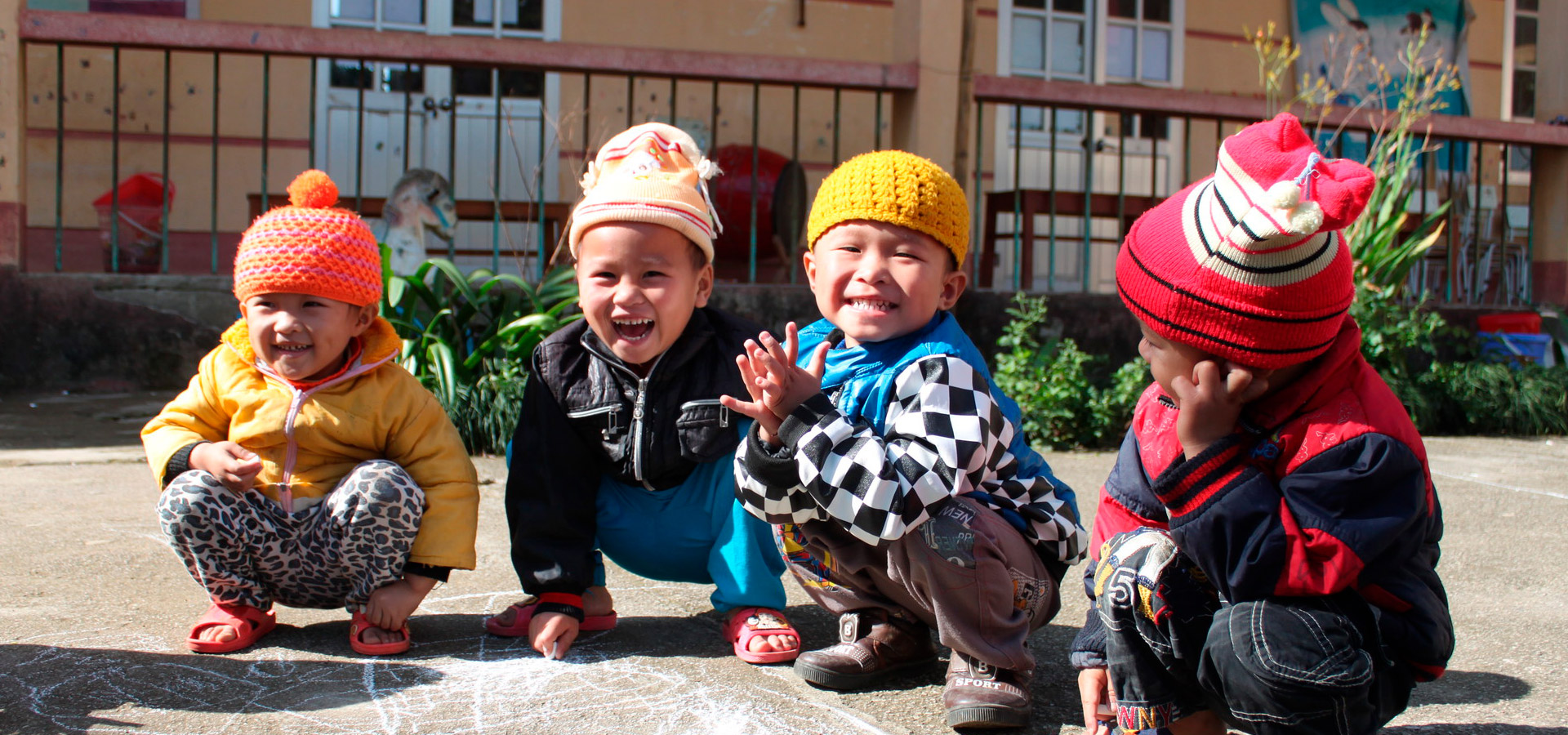Site will be
unavailable for maintenance from June. 4, 11:30 p.m., to June 5, 12:30 a.m. ET. Thank you for your
patience!
History

Rising to the challenge of children’s needs in a changing world
Helping children in vulnerable circumstances has always been at our heart, although how we do it has changed over time. What’s been consistent is our desire to ever improve how we make an impact — and we’ve fostered a spirit of learning and growth from the beginning, first as China’s Children Fund, then as Christian Children’s Fund and now as ChildFund International. Here’s where we’ve been and where we’re going.
1938: Helping children after war
Our founder, Dr. J. Calvitt Clarke, applied the child sponsorship concept we still use today, connecting caring people in relationships of financial and personal support with individual children in China who had lost their families in the Second Sino-Japanese war.
1960s: A focus on families
Acting on a growing understanding of what works best for children, ChildFund moved from supporting children in orphanages to helping whole families fight poverty at its roots.
1980s: Locally led development
Because helping an individual child or family goes only so far, we turned our attention to conditions in communities. We realized that the best path toward lasting change was to have local people lead local programs, because who understands community needs better than the people who live there? Local organizations still lead our work today.
1990s – 2000s: Child-focused aid in emergencies
We created the Emergency Action Fund, which positions our emergency response teams to provide both immediate relief and long-term assistance tailored to children’s unique needs in emergencies. In the early 2000s, we launched our first Child-Friendly Spaces, now our signature emergency response, to help children play, learn and recover after disaster.
2002: ChildFund Alliance
To better address child poverty worldwide, we joined with 11 other child-focused development organizations in forming ChildFund Alliance to expand our reach and accomplish all we can for kids.
2003: Children’s voices
Our in-depth study on child poverty showed that children acutely feel not only the physical but also the emotional and social impacts of poverty. We then understood that listening to children’s voices about their experience makes a profound difference in how we help them improve their futures. We listen before we act. And when we help, it’s as a partner.
2010s - 2020s: Ending violence
As children told us more and more about the violence in their lives, we began emphasizing child protection throughout our work, understanding that without safety it is impossible for kids to achieve their potential. This now includes protecting kids on the internet, since online sexual abuse is one of the world’s fastest-growing crimes. Keeping children safe at home, at school and online is now a centerpiece of how we support them.
Today: Growing Connections
As threats to children worldwide accelerate – including online exploitation, conflict, climate change and inequality – it becomes more urgent to take action so they can grow up healthy, educated, skilled and safe. But we cannot do this alone, so we’re growing connections to reach 100 million children and family members by 2030.
We’ll keep growing and learning — and connecting.
We’ve evolved over the years to help children improve their own lives.
But the world keeps changing, with many new global and regional economic, environmental, technological and other forces shaping children’s lives every day.
No matter what children face, we’ll be there to help them rise to the challenge – because we need each other.
